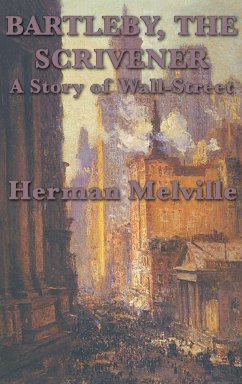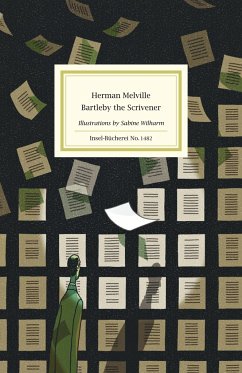
Bartleby, the Scrivener
a Story of Wall-Street
Versandkostenfrei!
Versandfertig in 1-2 Wochen
16,99 €
inkl. MwSt.

PAYBACK Punkte
8 °P sammeln!
Ever Felt Alone, Surrounded by People...? Bartleby the Scrivener explores the theme of isolation in American life and the workplace through actual physical loneliness and mental loneliness. Although all of the characters at the office are related by being co-workers, Bartleby is the only one whose name is known to us and seems serious, as the rest of characters have odd nicknames, such as "Nippers" or "Turkey." This excludes him from being normal in the workplace. Bartleby's former job was at the "Dead Letter Office" that received mail with nowhere to go, representing the isolation of communic...
Ever Felt Alone, Surrounded by People...? Bartleby the Scrivener explores the theme of isolation in American life and the workplace through actual physical loneliness and mental loneliness. Although all of the characters at the office are related by being co-workers, Bartleby is the only one whose name is known to us and seems serious, as the rest of characters have odd nicknames, such as "Nippers" or "Turkey." This excludes him from being normal in the workplace. Bartleby's former job was at the "Dead Letter Office" that received mail with nowhere to go, representing the isolation of communication that Bartleby had at both places of work, being that he was given a separate work area for himself at the lawyer's office. Bartleby begins to never leave the office, but repeats what he does all day long, copying, staring, and repeating his famous words of "I would prefer not to," leading readers to have another image of the repetition that leads to isolation on Wall Street and the American workplace.













